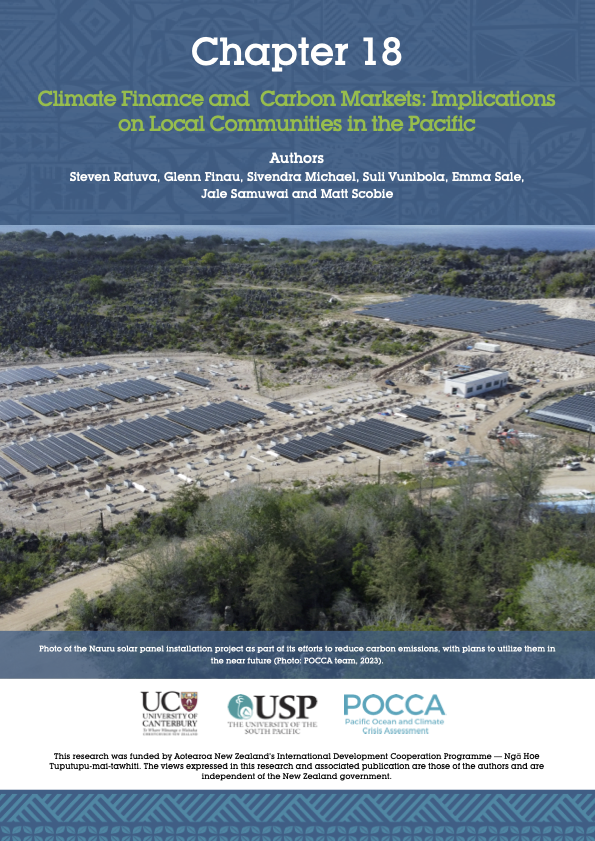
Authors
Steven Ratuva, Glenn Finau, Sivendra Michael, Suli Vunibola, Emma Sale, Jale Samuwai and Matt Scobie
Abstract
Financial resources are important in mobilising strategies towards climate change. Thus, climate finance is now seen as an important component of mitigation and adaptation in the campaign to address the slow onset and dramatic impacts of the climate crisis. However, there are debates around the political, economic and logistical aspects of climate finance and how impactful it is in addressing the needs of local communities at the forefront of climate-related disasters. This is because of the focus on funding for long term mitigation strategies rather than immediate adaptation and rehabilitation approaches. The study shows that while Pacific Islands Countries and Territories (PICTs) have benefitted from climate finance in certain sectors, they are faced with issues relating to accessing the different categories of climate finance because of the complexity of the processes involved. The article also examines the amount of climate finance disbursed in the Pacific and other issues relating to process, equity and timeliness. There is a view that climate finance should also help enhance the resilience and adaptive capacity of local rural communities as well rather than just focus solely on large energy projects which often benefit urban populations as well as private contractors. The chapter also looks at the controversial carbon trading scheme and how local Pacific communities have been involved in providing carbon credit through environmental conservation and the extent of monetary benefits to local villagers. In the bigger political economy rubric, the sale of carbon credits to big international corporations through middle operators, raises questions of climate ethics, equity and justice.
Rights
All rights reserved. This book is in copyright. No part must be republished without permission of the publishers.
